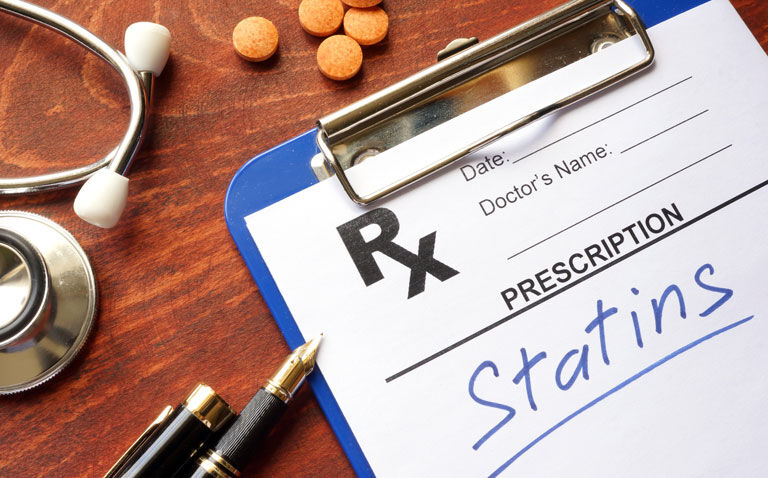Prior statin use resulted in a significantly lower risk of both hospitalisation and mortality among patients infected with COVID-19
Statin use as primary prevention against cardiovascular disease is associated with a significant reduction in the risk of hospitalisation and mortality among patients who become infected with COVID-19.
This was the conclusion of a large, propensity-matched analysis of the French National Healthcare database by a team from the French National Agency for Medicines and Health Products Safety, Paris, France.
While the introduction of COVID-19 vaccines has significantly reduced both hospitalisation and mortality from COVID-19, prior to this drug repurposing was examined as a potential means for reducing the severity of infection and one class of drugs examined were the statins.
There were good reasons to consider statins as potentially anti-viral agents because previous work had shown that in patients hospitalised with laboratory-confirmed seasonal influenza, statin treatment is associated with a 41% reduction in 30-day mortality. Moreover, other work found that cells treated with statins produced Ebola virus particles devoid of the surface glycoproteins required for virus infectivity.
There is already some evidence that among patients taking statins, there is a statistically significant decrease in the odds of in-hospital mortality in those with COVID-19. Nevertheless, this is not a consistent finding with other data has suggesting that the use of statins (in patients with type 2 diabetes) is associated with increased mortality among those hospitalised with COVID-19.
Much of the research to date did not include a control group and for the present study, the French team identified patients aged 40 years and older, prescribed one of several statins (the exposed group) and propensity-matched these individuals based on age, gender, co-morbidities and sociodemographic factors (control group).
But the team were also interested in whether there were differences between individual drugs within the class and if the intensity of therapy (e.g., low, moderate or high) impacted on either COVID-related hospitalisation or mortality.
The primary outcome of the study was COVID-19-related hospitalisation and using Cox proportion hazard models, adjusted for several covariates e.g., age, gender, co-morbidities, the researchers calculated event rates between those using statins and the matched-control patients.
Statin use and COVID-19 hospitalisation
A total of 2,058249 patients with a mean age 68.7 years (46.6% male) taking statins were matched with the same of number of control patients. The most common co-morbidities were hypertension (41.8%) and diabetes (33.7%). There were a total of 9,396 hospitalisations for COVID-19, 4372 among those in the control group.
In fully adjusted models, patients in the statin group had a 16% lower risk of hospitalisation (hazard ratio, HR = 0.84, 95% CI 0.81 – 0.88, p < 0.0001). This relationship was maintained for the different agents within the class. For example, the risk was reduced by 25% for fluvastatin (HR = 0.75) and simvastatin (HR = 0.79).
The relationship was also significant for low (e.g. fluvastatin 20/40 mg), medium (e.g., simvastatin 10 mg), not not for high (e.g., atorvastatin 40 or 80 mg) intensity therapy.
A similar reduction in risk was also evident for mortality among those taking statins (HR = 0.77, 95% CI 0.69 – 0.86). However, both atorvastatin and fluvastatin did not have a significant effect on mortality and as with hospitalisation, there was no significant effect for high intensity therapy on mortality.
The authors concluded that their data suggested a relatively small, but robust reduction in the risk of COVID-19-related hospitalisation and death among those prescribed statins before hospital admission.
Citation
Bouillon K et al. Association of Statins for Primary Prevention of Cardiovascular Diseases With Hospitalization for COVID‐19: A Nationwide Matched Population‐Based Cohort Study J Am Heart Assoc 2022










